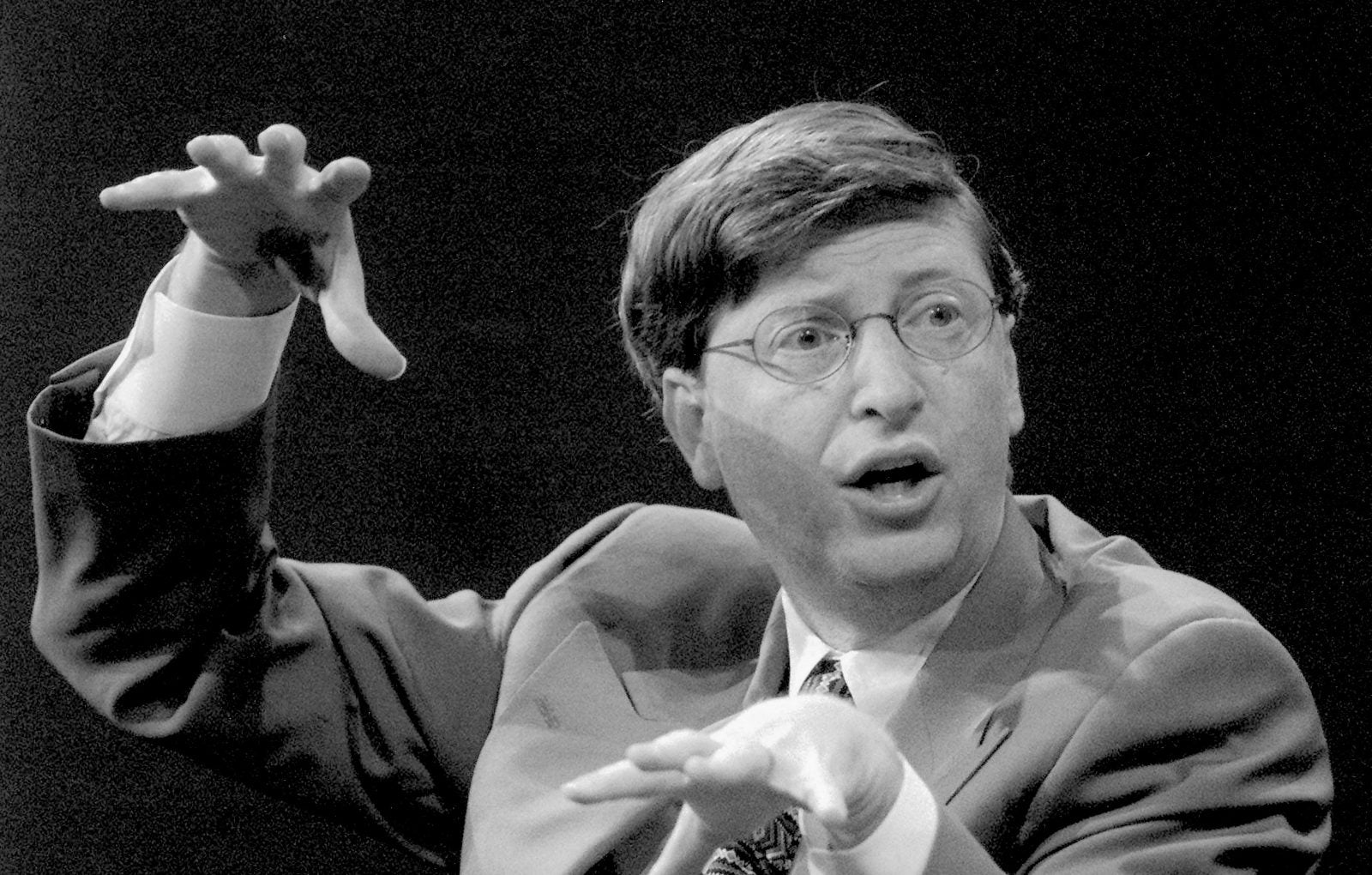Bill Gates’ biggest worry as a 31-year-old billionaire wasn’t Apple or IBM
When Bill Gates became a billionaire at age 31, he got just a little bit fancy. “I don’t have that many things that are extravagant taste, so things didn’t change too much,” he told Ellen Degeneres on her show yesterday (Feb 21). He did buy a Porsche, and eventually a plane for his frequent travels—both of which, he says, were “a huge indulgence.”


When Bill Gates became a billionaire at age 31, he got just a little bit fancy. “I don’t have that many things that are extravagant taste, so things didn’t change too much,” he told Ellen Degeneres on her show yesterday (Feb 21). He did buy a Porsche, and eventually a plane for his frequent travels—both of which, he says, were “a huge indulgence.”
“So you have a Porsche and a plane, and that’s it,” Degeneres replied.
“Well, in terms of crazy things, yeah,” said Gates, before conceding one more luxury—a trampoline room in his house. “The kids love it,” he said, smiling at his 21-year old daughter. “Indoor trampoline, I highly recommend it.”
So yeah, add a trampoline room, and seemingly impossible modesty (along with building a potentially trillion-dollar tech company, and $40-billion philanthropic foundation) to your list of Gates life recs.
But if you’re an entrepreneur genuinely invested in emulating Gates’ outstanding success, you’d be better off learning from his greatest early-stage anxieties.
“Mostly I loved software,” Gates replied when Degeneres asked if money was among his top priorities as a young founder. “I do remember at the private school I went to, some people’s families were better off, like they owned a Porsche or something, but it wasn’t that big of a deal. My thing was that I just loved doing software, and I loved hiring people, [so] I was stunned when it ended up being so valuable.”
Microsoft went public in 1986. It already was a powerhouse in the personal computer software industry, and under no pressure from investors to file an IPO. While IBM was also thriving, and Apple (despite having fired Steve Jobs in 1985) was still formidable, Gates had every reason to be confident in his software company’s computing dominance.
Yet he says he “was kind of stunned at what had multiplied out.” And he didn’t start relaxing upon becoming a billionaire, he told Degeneres:
I always wanted to have enough money in the bank so that even if our customers didn’t pay us for a year, we could still keep paying everyone and doing the [research and development]. So I could still be viewed as conservative. I always had to be careful that we wouldn’t hire too many people. I was always worried because people who worked for me were older than me and had kids, and I always thought, “What if we don’t get paid, will I be able to meet the payroll?” So I was always very conservative about the finances.
That’s right, married people with children were Gates’ biggest concern as he built Microsoft throughout his 20s and early 30s. It’s a worry today’s millennial entrepreneurs, CEOs, and founders should share, if they’re don’t already. While it’s easy for “youngs” to hate on “olds,” those who aren’t digital natives or, god forbid, haven’t mastered Instagram stories and matcha brewing, ageism is sure to paralyze both your business success and your personal development as a leader.
Contrary to popular belief, 47 is the average age of Silicon Valley entrepreneurs who have a successful exit (selling their company for a highly significant amount, or taking it public). Harvard dropout unicorns Mark Zuckerberg or Bill Gates are just that—profound rarities. They would not have made it where they are without the wisdom, perspective, and guidance of older, more experienced, and yes, sometimes married-with-kids partners like Sheryl Sandberg (Zuckerberg’s COO at Facebook) or Warren Buffet (Gates’ longtime mentor).
By investing significant emotional and professional energy in his older colleagues’ concerns, Gates embodied perhaps the most important managerial trait: open-minded attentiveness to each individual employee’s needs—the antidote to overconfident assumptions about what is best for your team, based on your singular perspective.
It’s a skill Gates remains known for today, as his business partner and wife Melinda recently explained: “I love Bill because he has a kind heart, listens to other people, and lets himself be moved by what they say. When I tell a story about what I’ve seen, he feels it. He might ask me to gather some data for good measure, but he doesn’t doubt the reality of my experiences or the soundness of my judgment.”
Especially for white men—the demographic that’s over four-times more likely to get VC funding than anyone else—such open-mindedness is essential to overcome the age, sex, and race-based biases that will otherwise hinder a business from reaching its highest potential.